Mental health sick leave is a right workers have when their mental health suffers due to disorders such as depression. Mental health sick leave is a tool they use when they need to halt their work activity temporarily to follow their treatment properly and recover from it.
Different causes give rise to this health problem and can lead to a mental health sick leave related to depression that negatively impacts the company, apart from the negative impact on the individual’s health. Some of these causes may be related to work itself. This is why companies have a great responsibility to prevent possible risk factors in this area. In addition, they must take into account the complexity of this issue in order to be able to provide the employee being affected by it with the support they need.
It is important to remember that depression is a mental health disorder that can manifest itself with varying levels of severity and, therefore, with different consequences in the lives of the people affected and their environments. When it is very intense, it should be considered a serious health problem and can involve a significant degree of limitation for the person who suffers from it.
Usually, this mood disorder tends to be confused with a feeling of intense sadness in which the person is plunged into a permanent state of melancholy that is difficult to get rid of and that isolates them from their environment. In reality, in addition to this melancholic state, depression must be related to a generalized and profound feeling of apathy, unwillingness, hopelessness, difficulty in enjoying and getting involved in different aspects of life, and emotional disconnection towards their surroundings.
How is mental health sick leave related to companies?
Companies play a key role when it comes to mental health sick leaves. Mental health problems in the workplace can be prevented if HR managers implement the right help to avoid issues from emerging in the first place.
What is mental health sick leave?
Mental health sick leave is the right employees have to take time off work due to poor mental health. It is important to consider preventative measures, such as implementing mental well-being solutions in a company, in order to tackle mental health issues before they arise.
Why is mental health sick leave important?
If employees aren’t well mentally, this will affect their tasks and productivity. Therefore, it is important to give them time to get better so they can come back and perform optimally.
What can I do to prevent the need for mental health sick leave in the future?
To prevent the need for future mental health sick leave, it’s essential to prioritise your mental health, this can be done through mental well-being solutions provided by your company. Additionally, consider discussing accommodations with your employer, such as flexible work hours or remote work options, to maintain a better work-life balance and reduce stress.
How should I communicate with my employer about my mental health sick leave?
Open and honest communication is essential when discussing mental health sick leave with your employer. You can consider having a private conversation with your supervisor or HR representative to explain your situation. Emphasize your commitment to your mental health recovery and discuss potential accommodations or work adjustments that may facilitate your return to work.

The benefits of mental health sick leave
As stated above, it is a mistake to consider that a person suffering from depression is simply someone who is very sad. It is rather someone who is so “switched off” that their responsibility and attachment to life and people is progressively weakening.
For this reason, it is of great importance to properly diagnose the presence of depression, to apply the necessary psychological and, if necessary, psychiatric treatment, and to provide the person affected with the necessary support to address their immediate health goal: to recover as soon as possible.
This requires time, and in this context, the concept of mental health sick leave is introduced and takes on its full relevance. We must bear in mind that, at a certain point, the person suffering from depression is neither psychologically nor physically able to perform the tasks assigned to them by their job properly. For this reason, they need to take a break to try to get back on their feet without necessarily losing their job, which is a highly undesirable consequence.
| Importance of Taking Mental Health Sick Leave | Explanation |
|---|---|
| 1. Promotes Recovery | Taking time off allows individuals to focus on self-care and recovery, reducing stress and improving mental well-being. |
| 2. Prevents Burnout | Regular breaks can help prevent burnout, enabling employees to return to work refreshed and more productive. |
| 3. Enhances Productivity | Addressing mental health concerns promptly through sick leave can ultimately lead to increased productivity and efficiency in the long run. |
| 4. Fosters a Healthy Workplace Culture | Encouraging mental health sick leave fosters a supportive workplace culture where employees feel valued and cared for. |
| 5. Reduces Stigma | Normalizing mental health sick leave reduces stigma surrounding mental health issues and encourages open communication. |
| 6. Improves Physical Health | Mental health is closely linked to physical well-being, and taking sick leave when needed can prevent physical health complications. |
| 7. Increases Job Satisfaction | Knowing that they can take time off when necessary can increase employees’ job satisfaction and loyalty to their employer. |
| 8. Supports Long-Term Mental Health | Prioritizing mental health sick leave supports long-term mental well-being, reducing the risk of chronic mental health conditions. |
| 9. Enhances Work-Life Balance | Taking mental health sick leave allows individuals to better balance their work and personal lives, contributing to overall well-being. |
| 10. Demonstrates Employer Responsibility | Employers who support mental health sick leave demonstrate their commitment to the well-being of their employees, improving morale and retention rates. |
Aspects of work affected by depression
It is evident that not every day or every period in our professional career are we at our maximum capacity and performance. However, there are certain moments when our psychological well-being, both inside and outside of work, can be particularly affected by depressive symptoms. These symptoms can worsen to the point where we may need to take a leave of absence due to depression. Here are some of the areas that can be affected:
| Aspects of Work Influenced by Depression | Description |
|---|---|
| Work Motivation | As we have indicated, depression dims our enthusiasm: it also diminishes our desire to work, our inspiration, creativity, and the sense of purpose we find in our tasks or responsibilities assigned to us. |
| Interpersonal Relationships | People experiencing depressive symptoms, to a greater or lesser extent, are often not emotionally available for others. Depression hampers our ability to connect with those around us and often drives us away from them. |
| Work Performance | It is evident that if we are not motivated, lack energy, have dysfunctional relationships, and cannot find meaning in what we do, our performance will deteriorate if we do not find a short-term solution, whether it involves taking a leave of absence due to depression or not. |
Join the global leading solution in mental well-being
Reasons to take mental health sick leave due to depression
At a bureaucratic level, it is established that the employee may need mental health sick leave due to two different reasons.
Common contingencies
On the one hand, there are personal reasons, i.e., those that trigger depression that are not related to work. These types of causes are considered common contingencies, and the family doctor is in charge of managing the sick leave.
Profesional contingencies
On the other hand, we must look at the reasons that are directly related to work (for example a continuous situation of burnout, conflicts with co-workers, or even suffering sexual harassment by a team member). In this case, we are talking about professional contingencies and, unlike in the other case, the mutual insurance company is responsible for accrediting them.
Unfortunately, it is not always possible for companies to avoid the emergence of depression among their employees. However, every organization must do its best to prevent it, knowing which professional contingencies can cause it and taking the necessary measures to take care of the health of the members of the workforce.
When should I consider taking mental health leave?
The decision to take mental health sick leave is a personal one and depends on the severity of the emotional challenges faced by the employee. If employees feel that their mental health is negatively affecting their well-being, work performance, or quality of life, it may be time to consider taking a break to look after themselves.
How do I know if my mental health problems justify my leave from work?
If an employee is experiencing significant symptoms such as anxiety, depression, burnout, or any other condition that hinders their ability to perform job duties effectively, it may be necessary for them to consider taking mental health sick leave. Consulting with a professional psychologist is advisable to assess their specific situation and provide them with a tailored solution.
How can I communicate my need for leave to my employer?
In such situations, individuals must communicate openly and honestly with their employer. They should schedule a meeting to discuss their challenges and the need for leave. It’s important to ensure they are aware of company policies regarding sick leave and consider providing medical documentation if required. This transparency can facilitate understanding and support from the employer during this time.
How long should I take for my mental health leave?
The duration of mental health leave varies depending on individual needs. Individuals should consult with a mental health professional to determine the appropriate duration and to adhere to their company’s leave policies. It is essential to take the necessary time for a full recovery, prioritizing one’s mental well-being above all else.
How can employees use Wellness Action Plan to prevent mental health sick leave?
Companies’ need to take preventative measures so that employees can address their mental well-being even before they appear. These coping mechanisms can include a variety of resources and of course, therapy. A useful tool is a Wellness Action Plan (WAP) created by our team of workplace well-being experts. This document is custom-designed for each employee to improve their psychological well-being at work through a series of questions. This document is to be filled out by both the employee and the manager to analyse different well-being triggers and how they can tackle them together. This document is confidential and can only be accessed by the employee and their manager.
Returning to work after mental health sick leave
Returning to work after a period of mental health sick leave can be challenging, and employees need the organisation’s full support. It’s essential to approach this process with care and consideration for your well-being. Here are some key points to keep in mind:
- Open Communication: There should be communication throughout the leave but without being too intrusive. Start by communicating with your manager and HR department before your return. Share your expected return date and any adjustments you may need to ensure a smooth transition back to work. Being transparent about your needs is vital.
- Gradual Return: If possible, consider a gradual return to work. This could involve reduced hours or a flexible working day, allowing you to ease back into your role while adjusting your personal life.
- Monitor Progress: Regularly assess your progress and mental well-being, you can do this through different resources in our Resources section. If you encounter difficulties or setbacks, don’t hesitate to seek additional support or consider adjustments to your work plan.
- Seek mental well-being support (if you haven’t already): Continue to work with a psychologist if needed. Regular therapy sessions or check-ins with a professional can help ensure you stay on the path to recovery.
Why is there still a stigma around mental health?
The stigma around mental health persists due to a lack of understanding and the presence of ingrained myths in society. Misinformation and stereotypes contribute to the fact that many people avoid seeking help, fearing judgement and discrimination.
How does stigma affect those struggling with mental health problems?
Stigma can have a significant impact on the daily lives of those struggling with mental health problems. It can make it difficult to seek support, accept one’s condition, and fully participate in society and the work environment.
How can we overcome stigma in mental health?
Overcoming stigma requires a collective effort. Promoting education and awareness about mental illness, sharing stories of overcoming stigma, and promoting inclusive language are key steps. We all have a role in challenging misperceptions and building more supportive communities.
How can we address the taboo surrounding mental health in the workplace?
In the workplace, it is essential to foster a culture that supports mental health. This includes promoting open conversations, providing mental well-being resources and programmes, and ensuring that company policies are inclusive and do not contribute to stigma.
How can I contribute to combating stigma in my environment?
You can contribute by challenging stereotypes, being an active advocate for mental health, sharing accurate information, and providing support to those in need. By talking openly and honestly about mental health, you contribute to creating an environment where stigma is lessened.
Eradicating stigma around mental health is an ongoing process that requires individual and collective efforts. By educating ourselves and working together, we can build a more understanding and supportive society for those facing mental health challenges.

Mental well-being program for companies
Organizations are not alone when facing this responsibility. Ifeel has created a mental well-being solution for companies designed by its team of leading psychologists to help companies boost their employees’ mental health, placing it at the core of their strategy to improve productivity sustainably.
Thanks to this partnership, HR managers can receive personalized, data-driven advice on the most effective measures to prevent a mental health sick leave among employees or address it in the best way for all involved once it has already happened.
In addition, ifeel’s mental well-being solution for companies offers employees a mental health care service structured at different levels depending on individual needs. This way, employees can access various mental health care tools with ifeel’s app. On level two, they can receive emotional support through a chat with one of our platform’s licensed psychologists. If additional support is needed, they can access the third level of the program: online psychological therapy with a psychologist specialized in cases such as theirs.
We hope you have found this post about mental health sick leave useful. If you want more information about our mental well-being solution for companies, simply request it and we will contact your team as soon as possible.









